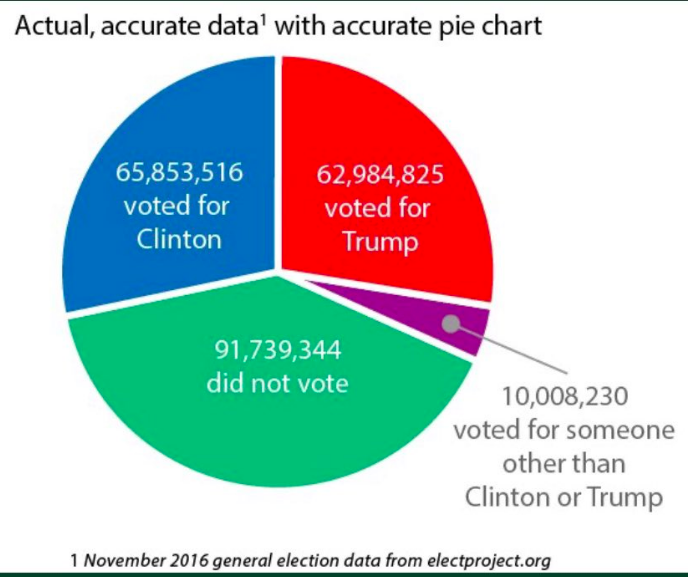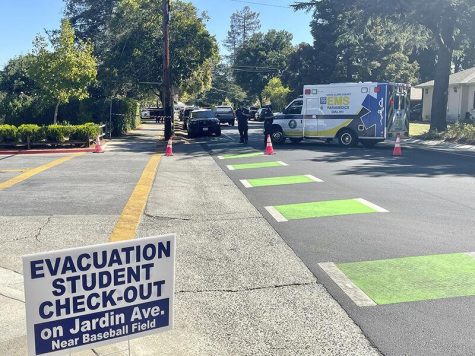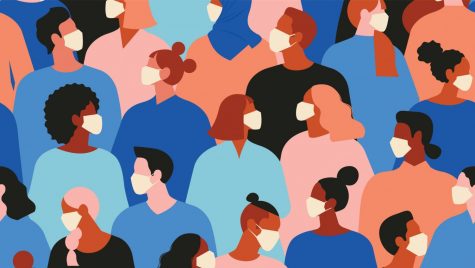Election 2020: third-party votes
Voting is one of the oldest practices of democracy in America. The right to vote fairly is another story, as things like voter suppression through discrimination in underprivileged communities still exist, albeit quietly. In the 2020 presidential election, there are two main candidates you can vote for: former Vice President Joe Biden, of the Democratic Party, and incumbent President Donald Trump, of the Republican Party. While these are not the only candidates running, they are the most popular, and third party voting is influenced by those who do not support either candidate or identify with either major platform.
In the 2016 presidential election, wherein Trump defeated former Secretary of State Hillary Clinton, about four percent of votes were for a third-party candidate. This adds up to ten million people, but in the grand scheme of things, it rarely matters. Polls conducted by NBC News in conjunction with The Wall Street Journal show that in 2016, third party voters lean towards Biden over Trump (and third party candidates) with almost a 2:1 ratio. This contributes to the notion that regular third-party voters either dislike Trump or Biden or support them, so much so that they would cast their ballot in their favor.
In addition, third party candidates are less popular this year because of COVID-19 restrictions and an overall lack of funding. Some candidates include Jo Jorgensen of the Libertarian party, Kanye West of the Birthday party (is he serious?) and Howie Hawkins of the Green party. Hawkins, who is seeing a lack of interest in his campaign, when asked why third party votes were decreasing in this election by NBC News, simply said “it’s Trump.” Some former third-party voters have come to despise Trump over matters of his policy and rhetoric so much so that they want him out of office. However, a common criticism is that third-party votes are a waste of time. They account for so few of the percentages, and in this 2020 election, where it can be argued that democracy is at stake, they might seem ineffective. Some have adopted the moniker “a vote for Kanye [West] is a vote for Trump,” assuming that some would vote for West out of pure irony.
Sadly, it is harder to vote for some citizens than others, specifically voters of color in underprivileged communities. Especially this election, early voting lines have been longer in underprivileged communities. It is quicker for white voters to vote compared to Black voters by a margin of 45 percent. This practice is unconstitutional and unfair, however, it is technically legal. In 2013, the Supreme Court rescinded a portion of the Voting Rights Act of 1965, which now allows states to discriminate against race. In addition, the Trump administration has been suppressing voters of color through denaturalization. The way this works is that ICE looks for undocumented immigrants based on their race or religion, and tries to find some way to deport them. Despite former President Barack Obama’s efforts to limit denaturalization, it has risen exponentially since 2016. Trying to get rid of immigrants, who probably would vote against Trump and his oppressive ways, is an incredibly unfair way to buy more votes for oneself.
Of course, there is an outlying factor in this election compared to others, and that is COVID-19. Understandably, some voters are wary to go in person because they are worried about the disease, which makes perfect sense. There is a common workaround for this: simply send in your ballots through mail. This method has been used for a while, and every registered voter in California receives a mail-in ballot. However, President Trump thinks otherwise, and has made it increasingly clear that he believes mail-in ballots are a form of “voter fraud.” This rhetoric simultaneously damages his reputation and compromises the democracy of which this country was built.
Early voting is also more common this year. Per ThePrint, 13 million Americans have already cast their ballots. Polling sites are busy, and there has been some error, specifically in Virginia where the online registration website crashed, due to an accidental wire cut. In addition, in Georgia, some voters had to wait upwards of eight hours to vote.
An important way a citizen can counteract these actions (and restrictions) is by making sure they are registered to vote and have a voting plan. California residents can do same-day voter registration, so there are no real deadlines for registering. One should check their voter status somewhat frequently, just in case. Election day is Nov. 3, 2020. Let’s vote him out!










